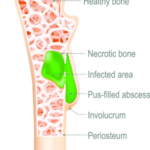SAN DIEGO—As part of a panel on systemic autoinflammatory diseases (SAIDs) at a Nov. 15 scientific session of ACR Convergence 2023, Sivia Lapidus, MD, shared context and insights on the therapeutic management of patients with these conditions. The Spectrum of SAIDs SAIDs encompass a broad swath of individually rare disorders driven by innate immune responses…







